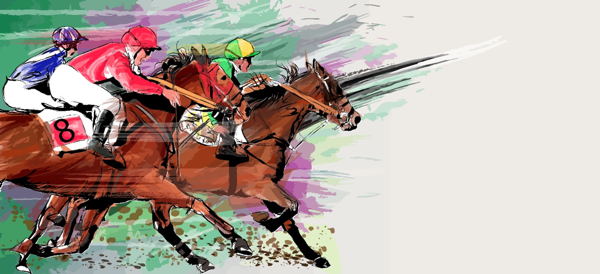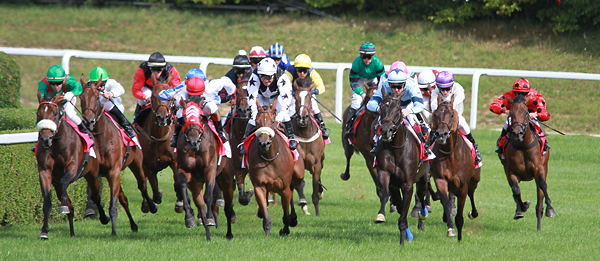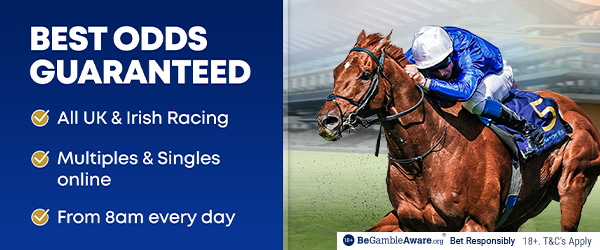 |
RacingBetter News |
| Tuesday 10th December 2019 | |
8 Things You’ll Need To Be A Successful Horse Racing Bettor
If you’ve ever seen anyone making a decent living from horse racing betting and thought “I could probably try my hand at that”, then you might want to reconsider that thought. Horse racing betting may not be the most physically demanding career in the world, but it does require a different set of skills, one that many people actually may not possess. The best horse racing bettors in the world make their craft look easy, but it’s actually extremely difficult to make money in this way. Here are 8 things you’ll need if you want to find success as a horse racing bettor.

1. Good health
Yes, believe it or not, you should be in good health to become a horse racing bettor. Again, you may not think this particular trait is important, but think of it this way: if you’re not in good health - both physical and mental - then you’re not well-equipped to make sound judgements about bets or to form strategies. You may also cause distress or annoyance to others if you’re betting in a public space as, say, a smoker. You don’t have to quit entirely; think about taking up nicotine pouches as a more acceptable alternative to smoking.
2. A good head for numbers
You’ll be doing a lot of calculations when you’re betting. Not only will you be thinking a lot about racing odds, but you’ll also need to take into account other variables like location, past performance, and so on. As such, it pays to have a good head for numbers as a professional horse racing bettor. We’re not saying you need to be a mathematical genius; just a basic proficiency with numbers and an understanding of probability will suffice. Still, if it’s been a while since you studied mathematics at school, you might want to brush up a little.
3. A sound strategy
One of the most important things you have at your disposal as a horse racing bettor should be a sound, dependable strategy for betting. It’s no good simply throwing caution to the winds and betting on whatever feels right at the time. Your instinct isn’t always correct and it doesn’t always pay to listen to it. Implementing a strategy means you’ll be able to make reasoned, informed decisions rather than simply “going with your gut”. Imagine how disastrous the consequences could be if you go with your gut and you’re wrong. Develop a strategy and stick to it.

4. Knowledge of horse racing
It might sound obvious, but if you’re going to be a professional horse racing bettor then you’ll probably need intimate firsthand knowledge of horse racing. Before you actually embark on your new career, just visit a few horse races (or horse racing websites) and get a feel for the sport. If you’re feeling sociable, try setting up a few interviews with jockeys or even just enthusiasts if you can find any. Talking to people and getting a real feel for the sport will help you to understand how it works, meaning you’ll increase your income by having more knowledge.
5. Perseverance
Not every bet you place is going to work. Sometimes, you’re going to feel like your strategy is failing you. When that happens, take a step back and recalibrate. Don’t simply give up at the first hurdle. It pays to persevere; your strategy might just be going through a slump, or you might just have had a few unlucky bets. If you simply quit and don’t stick with it, you’ll never become a successful horse racing bettor; every single person who takes this discipline up as a career has had bad times. It’s how you deal with those bad times that sets you apart.
6. A willingness to adapt
Like any sport, horse racing is constantly changing. Whether it’s planned reforms to the way the sport works in terms of quality of care or an alteration in rules between events, horse racing won’t stay static, and neither should you. Every time you find your strategy isn’t working for you, ask yourself why that might be. Is there anything you could do to make sure it’s better suited for next time? Having a willingness to adapt has many benefits; you’ll stay ahead of your competitors, increase your long-term profit, and learn something about flexibility into the bargain.
7. Enjoyment
If you don’t enjoy horse racing - don’t love the thrill of watching to see if your bet wins (or loses, depending on whether you’re laying) - then this might not be the career for you. It may sound obvious, but you’re going to be watching a lot of horse racing and you’re going to be gaining a lot of knowledge about it. If you don’t think the sport is for you, there’s no shame in backing out and trying something else. After all, this is a crowded field; if you don’t want to stay in this career, someone else will, and they’ll bring more enthusiasm to their bets than you if you don’t love it.
8. Knowledge of when to stop
As the Senet Group’s iconic campaign says, “when the fun stops, stop”. If you’re not enjoying yourself anymore, and if you find yourself furious over every failure instead of willing to pick yourself up and move on, that’s a good sign that you need to stop, at least for a while. There’s no shame in taking breaks; it’s a good way to reconfigure your approach, and it’s essential to make sure you battle back the spectre of gambling addiction. Getting addicted is even more of a worry for people who bet as a job than it is for hobbyists, so be aware at all times.







